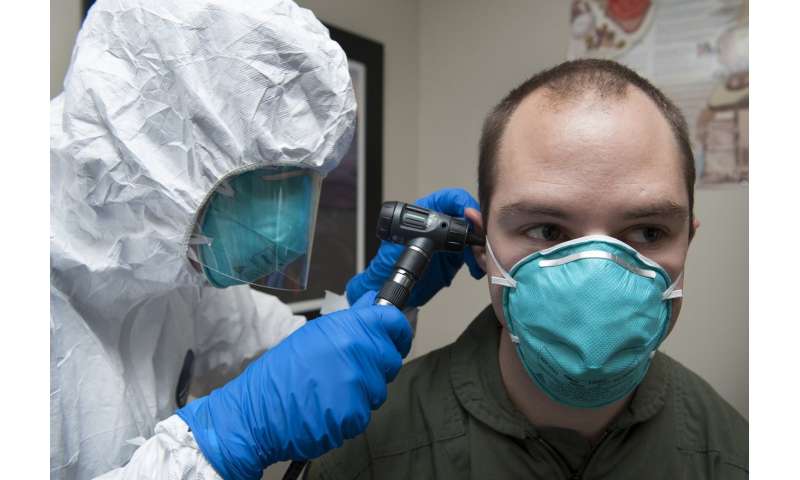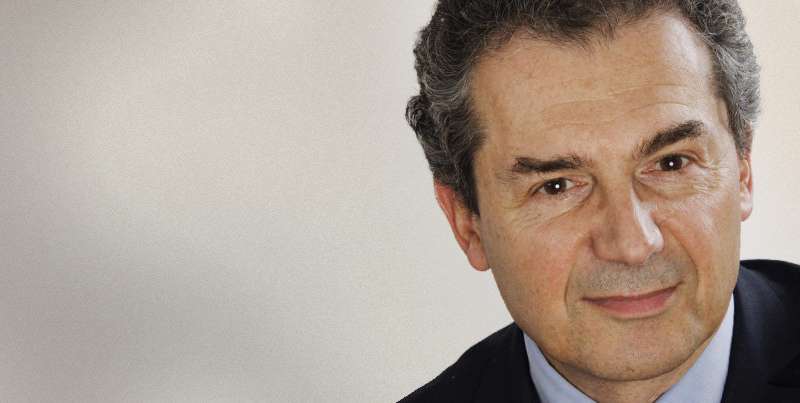Europe needs to prepare for the coming epidemic – Prof. Yves Lévy

To stand a chance in the war against infectious diseases, European researchers need to make preparations in 'peacetime' to give us the best chance of fighting the next epidemic when it comes, according to Professor Yves Lévy, Chief Executive of Inserm, the French National Institute of Health and Medical Research.
Will there be an epidemic in Europe?
'It is quite certain we will have to face a new epidemic. The question is, when and are we prepared? Antibiotic resistance, antimicrobial resistance in general is also already a real concern. For example, in France more than 12 000 deaths every year are related to antimicrobial resistance. It will be a real problem in the coming years.
'This is why several countries – UK, France, Germany and now the European Commission – are already very much committed to that. The most recent programme (for dealing with antimicrobial resistance) was launched at the G20 in Berlin to develop a hub for research and development programmes.
'One other risk is climate change. We see now some infectious diseases coming to Europe which were not there previously, for example Chikungunya or Dengue.'
How should society prepare for these diseases?
'First of all, recognise they are a threat and that we need to control them. Second, conduct surveillance. Third, (increase) coordination and collaboration between different countries. We have to be more active and more prepared during peacetime just to be more reactive when we have to face these epidemics.
'These viruses (that may cause a pandemic) are known but we don't have vaccines, we don't have diagnostics and we don't have drugs because research is not active in this field. Look at what happened in the last four or five years with Ebola, the vaccines were in the fridge and stopped in Phase I (early-stage trials). It could be exactly the same for another virus.
'For example, Nipah virus in east Asia and China targets 2 billion people in the world and is a very, very dramatic disease. Today, there is no diagnostic (test) and there is no vaccine.'
How can we ensure this research is done?
'The question is how to mobilise funding and the commitment of people, policymakers, institutions, NGOs and industry during peacetime and (for them) to say that we have to develop these vaccines.'
People are very aware of the risks, why isn't this already happening?
'It's a question of where you want to put your money. Before the Ebola crisis I am not sure that there was one call to fund research on Ebola at the European Commission. So, if we don't have the funding, we cannot develop research. With the budget constraints in our countries in Europe, for example, how can you convince people that they have to put money into some disease if you have policymakers who think that we will not have to face this disease?'

What message would you give to policymakers as they are thinking about where to allocate research funds?
'Increase the budget for research and ensure that this budget is sustainable in the long term, because to develop a vaccine takes 10 years, to find new drugs is 10 years, to develop the pipeline for new drugs for antimicrobial resistance, for example, is a long-term commitment. It can't just be a programme of three or four years, it should be a long-term commitment because in the end we will have to face this major, major epidemic.
'Look at what happened with flu. In France with the epidemic of flu in 2014, for example, I think for the first time there was a decrease in life expectancy of people in France just related to the flu epidemic, despite the fact that we had a vaccine. The coverage was low and the vaccine wasn't particularly efficient. Tomorrow it could be another virus, so research has to develop in a sustainable way.'
Where must this work happen, here in Europe, or in developing countries where diseases such as Dengue and Chikungunya are a real threat?
'Research should be in the North and in the South, in collaboration. For example, the EDCTP (European & Developing Countries Clinical Trials Partnership) programme is in collaboration with the countries of the South. For HIV we have the long history and experience of developing research in the North but in collaboration with the South. For Nipah we should have, and we have, collaboration with China.'
What is the real chance of there being a pandemic? How worried should we be?
'I cannot quantify the risk, but this means that we need to develop tools to model this risk. For example, we need to have collaboration between researchers conducting climate change surveillance and also the epidemiology of the vectors (disease carrying insects). This is exactly what happens with climate change and hurricanes today, people are looking at the temperature of the sea and they can tell you that the intensity of these climate disorders will increase.
'But what I am quite sure of is that a new flu infection or epidemic could be a disaster in Europe. Even if we may sometimes predict which kind of virus it will be and prepare a new vaccine, we know today that the coverage of the vaccine or the efficiency of the vaccine is not optimal. We would have a high number of deaths. So, we are quite sure that we will have to face epidemics, but not only in the South of the world but also in Europe. The question is when, and the question is how prepared are we.'
Is there anything you would like to add?
'If we take into account all the threats we will have to face in Europe – ageing, chronic disease, cancer – this has an impact on the way our societies are developing. It is very important that research funding is maintained, but also I would like to see more involvement and collaboration between the different institutions in Europe when defining the programmes and funding decisions for FP9 (Framework Programme 9, the next EU research funding programme starting in 2021), for example.
'The countries and the Member States are involved, but perhaps we need more brainstorming and not to decide in a bureaucratic way how to develop these programmes.'
Do you mean organisations such as Inserm should be more involved in this process?
'France is represented, but not the institutions and the researchers. Inserm represents researchers, I represent also the primary biomedical research institution in Europe, but I haven't had any official contact. I think it would be good to have a way to involve the researchers directly and the institutions.
More information:
Horizon brings you the latest news and features about thought-provoking science and innovative research projects funded by the EU. Our articles are written by independent science journalists and are designed to appeal to both scientists and non-scientists alike.
We mix stories on the latest EU-funded research with interviews with leading scientists, all written in a clear, accessible style. Each month we also take an in-depth look at a particular area of research, from 3D printing to Europe’s obesity epidemic. Our content is updated daily and access is free.
Horizon is published in English on behalf of the European Commission's Directorate-General for Research and Innovation and is available on both desktop and mobile devices. We’re also active on social media. For story suggestions or questions to the editor e-mail: editorial@horizon-magazine.eu
Provided by Horizon: The EU Research & Innovation Magazine